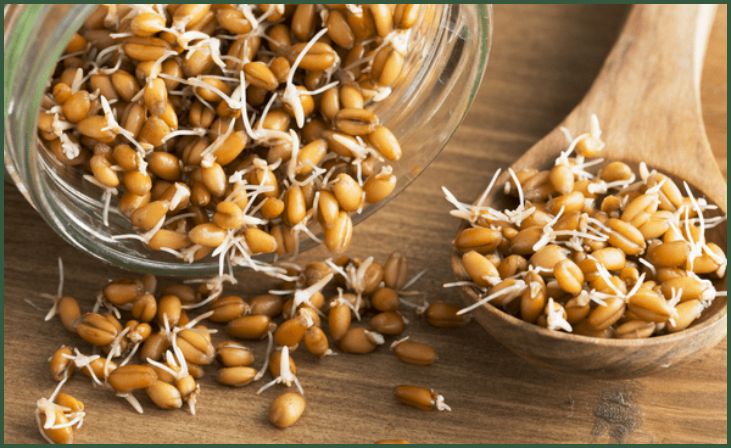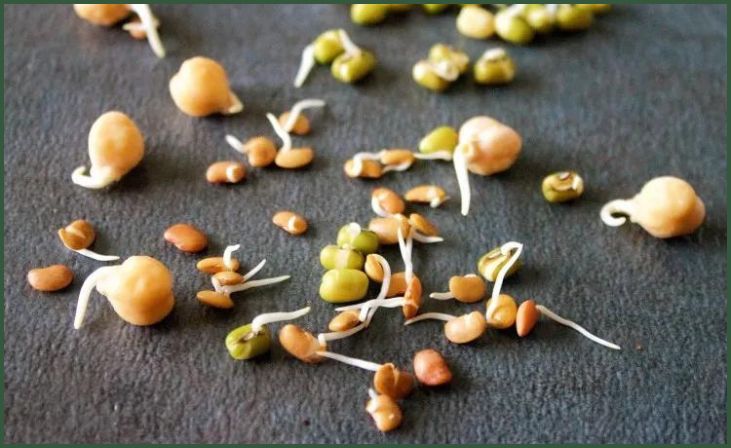Difference Between Soaked Sprouted and Sour Grains – Are you curious about the diverse ways grains can be prepared and consumed for optimal health benefits? Dive into the realm of soaked, sprouted, and sour grains to unlock the 15 key differentiating factors that make each of these methods unique. Delve into this comprehensive guide to understand how these practices can transform the nutritional profile and digestibility of grains, enriching your culinary experience and promoting overall well-being.
Table of Contents
ToggleDifference Between Soaked Sprouted and Sour Grains

Soaked Grains
- Soaked grains undergo a process where they are immersed in water for a specific duration, softening their texture and breaking down anti-nutrients.
- This method enhances the digestibility of grains, making the nutrients more accessible to the body and reducing the chances of digestive discomfort.
- Soaking also initiates the breakdown of phytic acid, a compound that inhibits the absorption of minerals, thereby improving the bioavailability of essential nutrients like iron, zinc, and calcium.
- By reducing cooking time, soaked grains retain more of their natural nutrients and enzymes, preserving their nutritional integrity and promoting a wholesome dietary experience.
- The soaking process can also help individuals with sensitive digestive systems by reducing the presence of potential irritants, making grains more gentle on the stomach and minimizing the likelihood of digestive issues.
Also Read: Pear Cider vs. Wine
Sprouted Grains
- Sprouting grains involves soaking them in water to initiate germination, allowing the sprout to emerge, signaling the activation of various enzymes within the grain.
- During sprouting, the carbohydrate content of grains decreases, while the protein and fiber content increase, resulting in a more nutrient-dense food product.
- The sprouting process triggers an increase in the concentration of vitamins, such as vitamin C and B vitamins, along with the release of beneficial antioxidants that contribute to overall health and well-being.
- Enzyme activity during sprouting can help break down gluten and other complex proteins, making sprouted grains a potentially suitable option for individuals with gluten sensitivities.
- Sprouted grains are known to possess a lower glycemic index compared to their unsprouted counterparts, making them a favorable choice for individuals aiming to manage blood sugar levels and maintain overall metabolic health.
Sour Grains
- Souring grains through fermentation involves the action of beneficial bacteria that convert carbohydrates into organic acids, leading to a tangy, acidic flavor profile.
- This process not only enhances the taste and aroma of grains but also contributes to an increase in the bioavailability of certain nutrients such as B vitamins, particularly B12.
- The fermentation of grains helps in breaking down complex sugars, making them easier to digest and suitable for individuals with sensitive digestive systems.
- Souring grains can lead to a reduction in gluten content, which might be beneficial for individuals with gluten intolerance or sensitivity.
- The presence of probiotics in sour grains promotes gut health by fostering a healthy balance of gut microbiota, supporting digestion, and bolstering the immune system.
Also Read: Mold or Yeast
Role of These Methods in Promoting Gut Health and Digestive Wellness

The methods of soaking, sprouting, and souring grains play a significant role in promoting gut health and digestive wellness. By incorporating these techniques into one’s diet, individuals can experience several benefits that contribute to a healthier digestive system and overall well-being.
Don't just scroll, subscribe!
BuzzTrail's unique web-stories are the cure for boredom you've been waiting for.
- Enhanced Digestibility: Soaked grains, sprouted grains, and sour grains undergo processes that break down complex compounds, making them easier for the body to digest. This can reduce the likelihood of digestive issues such as bloating, gas, and discomfort, promoting a more comfortable digestive experience.
- Improved Nutrient Absorption: These grain preparation methods can increase the bioavailability of essential nutrients such as vitamins, minerals, and antioxidants. By breaking down anti-nutrients like phytic acid, they help the body absorb more nutrients from the grains, ensuring that the body receives the maximum nutritional benefit from the food consumed.
- Balanced Gut Microbiota: The fermentation process involved in souring grains encourages the growth of beneficial bacteria, which can contribute to a healthy balance of gut microbiota. A well-balanced gut microbiome is crucial for overall digestive health, immune function, and even mental well-being.
- Reduced Irritants: For individuals with sensitive digestive systems or specific food sensitivities, these grain preparation methods can help reduce the presence of potential irritants. For instance, sprouting and souring grains can lead to a reduction in gluten content, making them more suitable for those with gluten intolerance or sensitivity.
- Support for Digestive Disorders: Some studies suggest that the consumption of soaked, sprouted, and sour grains may aid in managing certain digestive disorders, such as irritable bowel syndrome (IBS) and inflammatory bowel disease (IBD). The easier digestibility and increased nutrient availability can potentially alleviate symptoms and improve overall gut health.
- Regulation of Bowel Movements: These grain preparation methods can contribute to regular bowel movements and help prevent constipation by providing a good source of dietary fiber and promoting a healthy gut environment for healthy digestion. This can lead to improved gastrointestinal function and overall digestive comfort.
Incorporating these methods into one’s diet not only diversifies the culinary experience but also supports a healthy gut environment, which is crucial for overall health and well-being. By promoting digestion, nutrient absorption, and a balanced gut microbiome, these practices can contribute to a more robust and resilient digestive system, ultimately enhancing one’s overall quality of life.
Also Read: Salt Preserved Limes
Conclusion
With a deeper understanding of the distinctions between soaked, sprouted, and sour grains, you can now make informed choices to optimize your dietary habits. By incorporating these techniques into your culinary routine, you can elevate the nutritional value of your meals while enhancing the overall digestive experience. Embrace the richness and diversity that these grain-preparation methods offer, and embark on a journey towards a healthier and more nourishing lifestyle. We hope this blog has cleared all your queries on Difference Between Soaked Sprouted and Sour Grains.
FAQs
What are the primary benefits of consuming soaked grains?
What are the primary benefits of consuming soaked grains?
Soaking grains aids in breaking down anti-nutrients, enhancing nutrient absorption, and promoting easier digestion, thereby maximizing their nutritional value.
How does the souring process affect the nutritional content of grains?
How does the souring process affect the nutritional content of grains?
Souring grains through fermentation not only improves their digestibility but also increases the presence of beneficial bacteria and enhances the bioavailability of certain vitamins and minerals.

